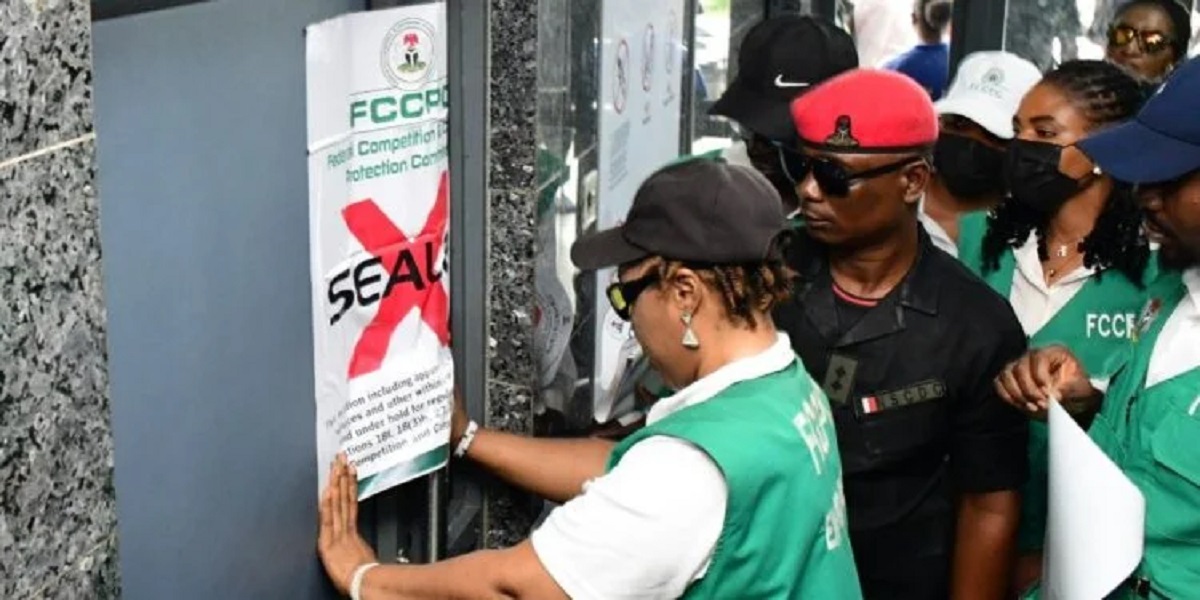News
Cyber Threats Wreaking Havoc on Enterprises

A consistent bombardment of unknown, targeted, and adaptive cyber threats are wreaking havoc in the enterprise and driving the expansion of Threat Intelligence Security Services (TISS)
Intelligence report showed that the TISS expansions are specifically designed to detect advanced persistent threats (APTs), advanced malware, and previously unidentified attacks.
Businesses and even the government sites in Nigeria are not spared in the worrisome attacks, especially with no cyber protection law to try offenders.
The bulk of knocks and tongue-lashing on the government by IT security experts within and outside the Country might have spurred the office of the National Security Adviser (NSA’s) National Cybersecurity Forum holding June 18 to 19, 2014 at Eko Hotel & Suites, Victoria Island in Lagos.
According to new research from International Data Corporation (IDC), worldwide threat intelligence security services spending will increase from $905.5 million in 2014 to more than $1.4 billion in 2018.
The TISS market is made up of several distinct facets, including data feeds and publications, consulting security services, and managed security services (MSS).
IDC has expanded its definition of the intelligence security services market to include what it calls iterative intelligence.
This iterative process learns from past experiences and mistakes, and incorporates this new knowledge at a more rapid pace, which often results in better long-term solutions.
“Threat intelligence is essentially a community activity,” said Christina Richmond, Program director, Security Services at IDC. “Attack information can come from many different sources, and iterative intelligence organizes this chaotic process of information sharing in order to help organizations in making future decisions.”
Additional findings from IDC’s forecast include that TISS consulting services make up roughly 22% of the 2013 TISS revenue.
Also, iterative intelligence must be available to small and medium-sized businesses as they see increased attacks like wire fraud and intellectual property theft.
Market observers also said that both professional and managed security services will continue to experience strong growth in the threat intelligence arena.
TISS offers customers deeper insights into global threat environments than they could achieve themselves.
Security services firms are creating alliances with universities and accreditation programs to find and develop security personnel.
Toheeb Agboola, chief technical officer, Information Technology Resources and Development Network (ITRDN), spoke to Nigeria CommunicationsWeek on cyber-security experience in Nigeria, presently.
He said, it is no news that Nigeria ranks top among countries with high exposure to cyber threat unlike in the past, the nation has graduated into the eye of the storm.
Agboola said, “Individuals and businesses need to exercise measures and adequate protection strategy and recovery plan while government must as a matter of national importance enforce proper national policy and action plan on protection from cyber threats, aggressions and crimes. I am aware NITDA inaugurated a team sometime ago in April to serve as a watch dog for cyber threat and online aggression against Nigeria and I believe it’s a good start but take note we are behind. So efforts should be able to speed up the process.
“Our exposure to attract cyber attacks is largely due to rising development of internet based transactions and activities as well as increasing broadband availability/internet penetration, implementation of cashless system, growing usage of mobile and smart devices and the fast growth of online ecommerce arena.
As more and more of our daily engagements, social interaction and business transaction continues to depend on online platforms, computers and internet, the risk of increasing cyber threat and warfare has become inevitable at the different levels of our national life and its imperative to institute a three phase model – Plan, Prevent and Protect – in the scheme of our national security plans.
“It is important to state that individuals, businesses and indeed the government are constantly at risk of cyber attacks and should take priority in taken concrete steps to mitigate and prevent such destructive potential before they ever materialize. Although our lackadaisical attitude and assumption that presupposes that we are not potential targets are major storming blocks for getting started on the right track”.
Agboola further warned that any businesses, individuals or government that use, produce, manage or collect important user or business data is at risk of cyber threats and a potential target.
He said every effort should be made to prevent, detect and address cyber issues as they before and while they occur, adding that cyber traitors are no respecters of developed country or developing nations as all are exposed in the global village era.
News
DBN Awards N13m in Grants to Tech Startups

Development Bank of Nigeria (DBN) has awarded a total of N13 million in grants to three standout tech startups at the 2025 Techpreneur Summit held in Lagos, reinforcing its commitment to innovation and inclusive growth among Nigeria’s micro, small, and medium enterprises (MSMEs).

The winners include: BuyScrap, a digital marketplace for recyclable materials – N6 million; Qiqi Farms, which connects local farmers to hospitality and export markets – N4 million; Eco-Cyclers, a youth-led recycling initiative based in Enugu – N3 million
Alongside the grant awards, DBN also launched a new digital data asset, a first-of-its-kind platform aimed at enabling data-driven decisions within the MSME ecosystem.
The platform offers deep insights into business trends, sector-specific challenges, and growth opportunities—supporting smarter policymaking and targeted investments.
In his keynote address in Lagos, Tony Okpanachi, managing director/ CEO, DBN, described the event’s theme, “CTRL + SHIFT: Tech Empowered Movement for Naija,” as a strategic call to reimagine enterprise development in Nigeria.
“This isn’t just a keyboard shortcut,” he said. “It’s a mindset reset—powered by technology—to build a more inclusive, innovative, and resilient business landscape. From financing to innovation, DBN remains committed to enabling MSMEs to thrive.”
Okpanachi emphasized that the Summit aligns with DBN’s AMPLIFI Strategy, which integrates digital transformation, sustainability, and scalability into its core programs.
He highlighted initiatives such as the Digital Shift Workshops and the Eco-Innovation Challenge as key steps toward embedding innovation in Nigeria’s MSME sector.
Encouraging young innovators, he added: “The future belongs to those bold enough to imagine and build it. DBN is proud to support the ideas that will shape tomorrow.”
A major highlight was the unveiling of the DBN Data Asset—a digital platform designed to provide real-time, evidence-based insights into Nigeria’s MSME landscape.
The platform combines DBN’s proprietary data with external sources like the National Bureau of Statistics (NBS) to offer a comprehensive view of MSME performance by region and sector.
Jeremy Dan Okayi, DBN’s Head of Strategy, Policy & Innovation, described the platform as: “A reservoir of insight, potential, and direction—built on two years of collaboration and shared vision. This tool will support informed decision-making across the public and private sectors.”
News
FCCPC Shuts France, Belgium, and Italy Visa Centres in Abuja Over Alleged Consumer Rights Violations

In a bold enforcement action, the Federal Competition and Consumer Protection Commission (FCCPC), supported by the Nigeria Police Force and the Nigeria Security and Civil Defence Corps (NSCDC), has sealed off the visa application centres of France, Belgium, and Italy in Abuja over alleged consumer protection breaches and obstruction of regulatory investigations.

The affected centres—located at Mukhtar El-Yakub House in the Central Business District and operated by TLS Contact, a Teleperformance Company—were shut down following reports that they refused to accept formal correspondence from the FCCPC regarding a consumer complaint. The Commission cited further infractions, including obstruction of investigation and alleged assault of its officers during lawful duties.
Speaking to journalists at the scene, Mrs. Boladale Adeyinka, Director of Surveillance and Investigations at the FCCPC, explained: “This is an enforcement operation against TLS. On March 25, 2025, we served them a letter to address a consumer complaint, which they refused to accept. Instead, TLS officers assaulted our team, and in a subsequent visit on June 17, they also allegedly assaulted uniformed police officers.”
Citing Section 33 of the Federal Competition and Consumer Protection Act (FCCPA), Mrs. Adeyinka emphasized that failure to comply with Commission directives constitutes a criminal offense, punishable by imprisonment, fines of up to ₦20 million, or both.
TLS has been ordered to appear before the Commission on June 20, 2025, to provide testimony, submit evidence, and make formal depositions. The company may be held liable for any financial losses suffered by applicants due to the disruption of visa services.
Despite multiple requests for comment, management at TLS Contact declined to respond as of press time.
News
How and Why N210 Trillion is Missing in NNPCL – CFO

Adedapo Segun, chief financial officer (CFO), Nigerian National Petroleum Company Limited (NNPC), has explained why there is a missing sum of N210 trillion in the company’s audited financial statement spanning from 2017 to 2023.

According to Segun, the missing funds are cash calls requested by joint venture (JV) partners and settlement to the JVs.
He spokeat a session of the Senate Committee on Public Accounts chaired by Aliyu Wadada.
Segun was responding to an alarm raised by the committee over missing N210 trillion in NNPCL’s audited financial statement.
Recall that Wadada issued a one-week ultimatum to NNPCL to account for the missing N210 trillion.
Reacting, Segun said, “The N103 trillion and N107 trillion are made up of joint venture cash calls that have been requested by the JV operators and JV cash call payments made by NNPCL, which are yet to be reconciled because governance procedures were not done at that time.
“That is why you see the description reflecting those two items would be washed out because they are two sides of the same transaction, which is the cash calls by JV partners and the settlement by NNPCL.”
However, Habu Sadeik, a financial analyst, in a post on X on Thursday, said Segun’s response was unsatisfactory.
Saidik faulted NNPCL’s response about the fund discrepancies, noting that something is not right with the audited financial statement.
“Forget about the senators’ lack of knowledge.
“The CFO’s response is not satisfactory. Are you saying that cash calls worth hundreds of trillions are just appearing on your FS only in 2024 without 31 disclosure?
“If it’s a cash call, why hasn’t the disclosure said so?
“Which cash call is over 100 trillion?
“Something is definitely not right, and I hope they retrospectively correct that FS.
“Someone somewhere did a chef’s work,” he wrote on X.

 General News1 day ago
General News1 day agoNASRDA, Galaxy Space Firm Sign MoU on Satellite Connectivity

 Telecom1 day ago
Telecom1 day agoOver 1m Nigerians Reached through MTN Staff’s Digital and Community Outreach

 Telecom1 day ago
Telecom1 day agoMafab Gets 0724 Number Series, Launches Mcom 5G Brand

 News1 day ago
News1 day agoDBN Awards N13m in Grants to Tech Startups

 News1 day ago
News1 day agoFCCPC Shuts France, Belgium, and Italy Visa Centres in Abuja Over Alleged Consumer Rights Violations

 News2 days ago
News2 days agoHow and Why N210 Trillion is Missing in NNPCL – CFO

 General News2 days ago
General News2 days agoIHS Nigeria, United Nations Global Compact Host High-Level Dialogue on Sustainability and Greener Business Practices in Nigeria

 News2 days ago
News2 days agoPalmPay, Glo Launch “Recharge and Win Bonanza 2” with Exciting Prizes

























